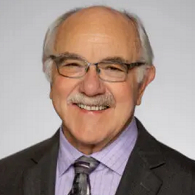The demand for exceptional leaders has never been more critical. As organizations faced unprecedented challenges in recent years, leaders were thrust into the forefront. A few of the challenges in leadership include crisis communication, adopting new ways of working, implementing new collaborative skills, responding to changing customer behaviors, and compensating for supply chain challenges.
In this blog, leadership development and ROI experts – Dr. Patti Phillips and Dr. Jack Phillips – will explore the challenges in leadership, the evolving role of leaders, the essential skills required for effective leadership, and the value of leadership development programs in sustaining organizational success.
Join Dr. Patti Phillips and Dr. Jack Phillips for an insightful webinar.
Proving the Value of Leadership Development: Case Studies of Top Leadership Development Programs
Skills and challenges in leadership
The most significant challenges in leadership are meeting people where they are, supporting them through their journey, re-building teams to keep the business running, offering exceptional customer service, sparking innovation, and fostering growth—all while building an inclusive environment and striving to be fair, equitable, and inspiring. No small task but for those called to lead, this period offers the opportunity for many to ensure their organizations survive, revive, and thrive.
For those who seize this opportunity, it can be enriching. And their moment has come for those charged with developing the leaders who are so critical to the organization’s success. CEOs believe that leadership is essential. The challenge is to design the leadership programs that produce the business results and then articulate that impact in ways that prove leadership development programs deliver what organizations need.
Moving forward, CEOs think there are many critical skills needed for effective leadership, including:
- Practical communication skills to articulate the mission and purpose of the organization.
- Collaboration skills to drive productivity and innovation.
- Empathy to build trust and create a high-performing team.
- Inclusive leadership skills foster a sense of belonging to retain talent and promote the required corporate culture for the future.
- Coaching and people-development skills to develop remote and on-site employees and increase the pace of skill-building for overall organizational capabilities.
- Teambuilding skills to create resilient and agile teams.
- Strong interpersonal skills to improve the quality of internal relationships.
The role of the leader has evolved
Against the backdrop of a global pandemic, civil unrest, an economic crisis, global supply chain disruptions, and increasing geopolitical tensions, we began to realize the fissures in our health care and child/elder care infrastructure, the fragility of food and housing security levels, the impact of wage inequity as well as the lack of mental health support for those who needed it most.
Ready or not, leaders were called upon to address the concerns of workers who faced these challenges while trying to deliver business performance. And these leaders learned how to lead in-person, virtual, or hybrid teams in a crisis as quickly as possible. To be effective in this new environment and leadership challenge, team leaders need many of the time-tested leadership skills we’ve depended upon for years, and new and different skills are now required to maintain worker engagement and productivity in various settings, make decisions quickly, and communicate effectively.
For years, first-time and front-line supervisors received initial training in the “fundamentals” of managing others, hiring guidelines, and performance management. That was followed by years in a desert of development with a few instances of an “oasis” (usually around compliance issues), and then, if by some miracle, they made it to the higher ranks of the organization, they were tapped for senior leader training. Now, high potentials are regularly identified and groomed; organizations are casting a broader net to tap underserved populations; there is continual development for leaders at all levels, and an emphasis is placed on keeping women and people of color in the leadership ranks.
Leadership Development Programs
Many formal leadership development programs shifted years ago to a shorter duration, alignment with agreed-upon leadership competencies, 360-degree feedback, more pre/post assessment data analysis, coaching, cohort/action learning projects, and a commitment to involving the manager and other stakeholders. Experiential programs with real-world leadership challenges to be solved, especially among in-tact teams, have proven to be a practical approach. The shift to personalized development is a trend that continues to build momentum, as is the use of virtual coaches, group coaching, and team development. More and more programs tie the effectiveness of the intervention, either on an individual or group level, to business unit or organizational performance. And considering the cost associated with installing one of a plethora of online or virtual reality platforms to support coaching and mental health, investments will need to be evaluated for impact and cost efficiency.
What is covered in leadership development in its broadest sense has evolved as well, with more of an emphasis on understanding strategy and how to cascade and implement the strategy; scenario planning and developing agile and resilient teams; coaching and developing people; being a culture champion; becoming an inclusive and inspiring leader. Team development is here to stay, particularly at the senior levels, where mutually dependent leaders must align among themselves and between teams for shared business outcomes. And the trend toward the specialization of programs designed for key executives and their next career move will continue, often in partnership with academic institutions. Explore our HRDQ Store ⇗ to discover a wide range of leadership training and development programs.
Embrace the evolving roles and challenges in leadership
In the face of global upheavals and transformative challenges, leaders have had to rise to the occasion and lead with resilience, adaptability, and empathy. The role of leaders has evolved to encompass a diverse set of skills, including communication, collaboration, and inclusive leadership, which are crucial for organizational success. With a growing emphasis on leadership development at all levels and the shift towards personalized and experiential programs, organizations invest in nurturing their leaders for the long haul. As we move forward, demonstrating the value of leadership development programs becomes essential, showing that investing in developing strong, capable leaders is not just a cost but a strategic move that ensures the sustainability and resilience of the organization’s leadership pipeline. By fostering exceptional leaders, organizations can confidently navigate the challenges of the future and build a brighter, more inclusive, and prosperous tomorrow.
Recommended Webinar
This webinar will trace the transformation of leadership development through case studies and real-world examples to show you how to navigate more challenges in leadership.
Sign up now for this webinar on transforming your leadership development.
About the Authors
Patti P. Phillips, Ph.D., CEO of ROI Institute, Inc. ⇗, is a renowned leader in measurement and evaluation. Patti helps organizations implement the ROI Methodology in more than 70 countries worldwide.
Since 1997, Patti has been a driving force in the global adoption of the ROI Methodology and using measurement and evaluation to drive organizational change. Her work as an educator, researcher, consultant, and coach supports practitioners as they develop their own expertise in an effort to help organizations and communities thrive. Her work spans the private sector, public sector, nonprofit, and nongovernmental organizations.
Patti serves as a member of the Board of Trustees of the United Nations Institute for Training and Research (UNITAR). She serves as chair of the Institute for Corporate Productivity (i4cp) People Analytics Board; Principal Research Fellow for The Conference Board; board chair of the Center for Talent Reporting (CTR); and is an Association for Talent Development (ATD) Certification Institute Fellow. She also serves on the faculty of the UN System Staff College in Turin, Italy.
Patti has authored or edited more than 75 books on the subject of measurement, evaluation, analytics, and ROI. Her work has been featured on CNBC, Euronews, and in more than a dozen business journals.
Connect with Jack and Patti on Facebook, Twitter, and at www.roiinstitute.net.
Jack J. Phillips, Ph.D., chairman of ROI Institute, Inc. ⇗, is a world-renowned expert on accountability, measurement, and evaluation. He provides consulting services for Fortune 500 companies, nonprofit entities, and government and nongovernmental organizations globally. He is the author or editor of more than 100 books, conducts workshops, and presents at conferences worldwide.
Jack has received several awards for his books and work. The American Society for Training and Development gave him its highest honor, Distinguished Contribution to Workplace Learning and Development. The International Society for Performance Improvement presented Jack with its highest award, the Thomas F. Gilbert Award, for his contribution to human performance technology. On three occasions, Meeting News named him one of the 25 Most Powerful People in the Meetings and Events Industry, based on his work on ROI. The Society for Human Resource Management presented him with an award for one of his books and honored a Phillips ROI study with its highest award for creativity.
In 2019, Jack, along with his wife, Patti P. Phillips, received the Distinguished Contributor Award by the Center for Talent Reporting for their contribution to the measurement and management of human capital. His work has been featured in the Wall Street Journal, BusinessWeek, and Fortune. He has been interviewed by several television programs, including CNN.
Connect with Jack and Patti on Facebook ⇗, Twitter ⇗, and at www.roiinstitute.net ⇗.
We recommend reading books authored by Dr. Patti Phillips and Dr. Jack Phillips to gain further knowledge.
*Please note: this post may contain affiliate links. If you click one of them, we may receive a commission at no extra cost to you.
“Related” Learning
Discover more HRDQ-U leadership blogs and webinars
Access more valuable HRDQ-U content by Dr. Patti Phillips and Dr. Jack Phillips
Explore HRDQ Store’s leadership training resources ⇗



















